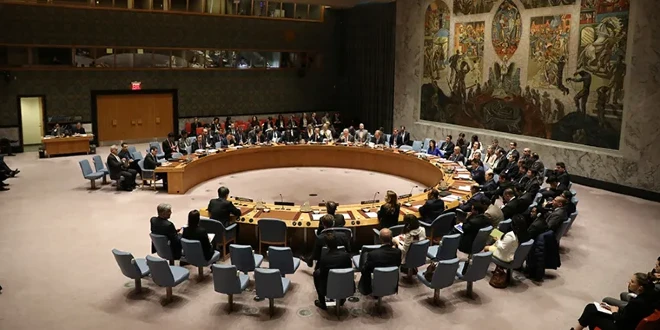The United Nations Security Council has postponed its vote, originally scheduled for Monday evening, to Tuesday morning on a resolution proposed by Arab nations. This resolution calls for an immediate cessation of hostilities in Gaza to facilitate crucial aid deliveries to the vast number of civilians in need. The delay is attributed to intensified negotiations aimed at preventing another U.S. veto.
The draft resolution, debated on Monday morning, demanded an “urgent and sustainable cessation of hostilities” to allow humanitarian aid access. However, amendments may be made to soften the language to a “suspension” of hostilities or a less stringent term, in order to gain support or at least an abstention from the United States.
Human Rights Watch has accused Israel of deliberately blocking essential supplies like water, food, and fuel to Gaza, labeling it a war crime. The United Nations’ food agency highlighted a significant increase in households in Gaza facing severe hunger.
Previously, the U.S. vetoed a similar resolution on December 8, despite broad support from council members and other nations. The General Assembly passed a comparable resolution on December 12 with an overwhelming majority, reflecting global opinion, though these resolutions are not legally binding.
The draft resolution under consideration emphasizes the dire situation of civilians in Gaza lacking basic necessities. It also expresses deep concern over the disproportionate impact of the conflict on children, women, and vulnerable civilians.
According to the Gaza Health Ministry, over 19,400 Palestinians have been killed since Israel declared war on Hamas following an attack in southern Israel on October 7, which resulted in approximately 1,200 deaths, predominantly civilians, and about 240 hostages taken by Hamas.
The draft resolution reiterates the demand for compliance with international humanitarian law, particularly in protecting civilians and critical infrastructure. It also calls for the immediate and unconditional release of all hostages held by Hamas and reaffirms commitment to a two-state solution, urging the unification of Gaza and the West Bank under the Palestinian Authority.
The United Arab Emirates, representing the Arab nations on the Security Council, is leading the negotiation of the draft, which also requests the establishment of a mechanism by U.N. Secretary-General Antonio Guterres to monitor humanitarian shipments to Gaza.


